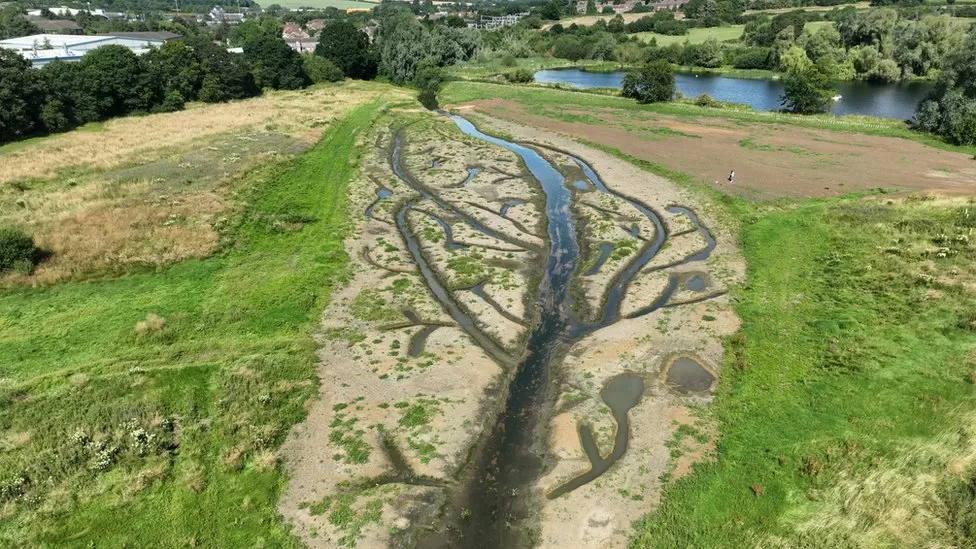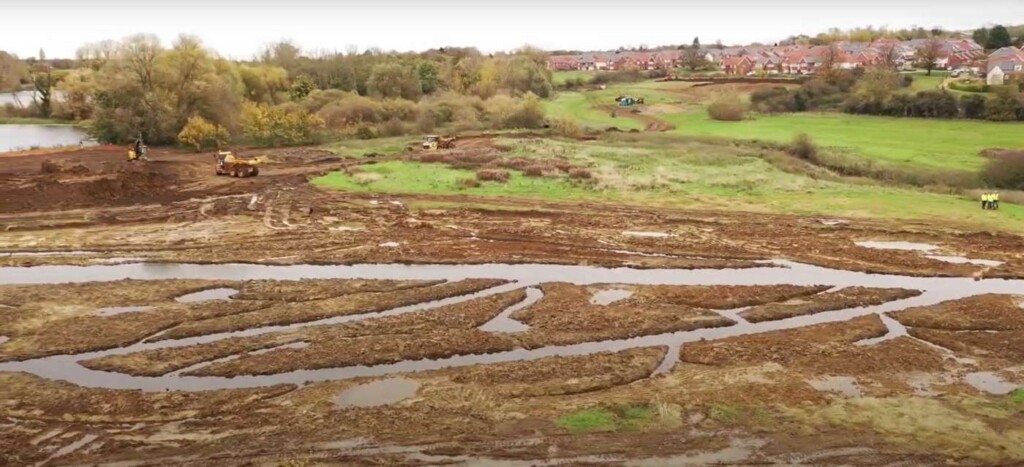
In England’s county of Northamptonshire lay a marginal field that was recognized to have no value, as it could not be built on. It’s now been restored to a wetland meadow that will become a haven for biodiversity and an engine for clean water and green recreation.
Slade Brook, a small waterway that was diverted in the 19th century to build a railway, has been realigned to run through the meadow as part of its once-forever role as a feeder for the larger River Ise.
Once upon a time, the brook babbled its way through the meadow which served as critical flood control. During times of heavy rain the brook would spill over the several-acre meadow which would absorb the excess water and prevent catastrophic flooding downstream.
To that end, the Nene River Trust has shelled out £250,00, or around $310,000 to re-channel the brook through the meadow, restoring it to a more natural state that will hopefully allow England’s aquatic animals to flourish alongside it.
“It was unmanaged land with no value,” Viktor Tzikas from the Trust, told the BBC. “It was taken on by Wicksteed Park, who didn’t know what they could do with it, so they approached us and the Environment Agency, asked for advice and it then snowballed.”
Using heavy earthmoving equipment, the banks of the brook were widened, and several stem channels were dug out leading to small pools replicating what a natural brook would look like.

Slade Brook is just one tributary of the River Ise, which is the largest tributary of the River Nene from which the Trust takes its name. Slade Brook is just one stream in the Trust’s overall aim of restoring streams of the Ise River Valley to the most natural state possible.
OTHER RIVERS RESTORED: Total Rejuvenation of ‘Dead’ River by a Rural Indian Community Hailed as National Example
“Rivers are an expression of their catchments, their path, physical condition, and water quality are a reflection of the landscape they drain and through which they flow,” the Nene Trust writes in their plan overview, rather poetically. “The River Ise is no exception, and its status is an echo of the Valley it transects.”
The Ise Valley sits within a growth area that is seeing the expansion of nearby towns including Kettering, Wellingborough, and Corby. It’s expected the river will see increased pressure through demand for recreation opportunities and ecosystem services such as clean air and water.
“As a result of this growth, there will be the requirement for new accessible, high-quality green spaces as well as the rejuvenation of existing green spaces for local communities,” the plan continues.
GETTING MUDDY: Scientists Uncover Secret In Centuries-Old Mud, Drawing A New Way To Save Polluted Rivers
Many small rivers in the world have been indelibly altered from their natural state—straightened and narrowed to increase speed and depth and therefore more boat traffic, or to allow for roads to be built alongside them. Gradually it was discovered that this significantly increases the flooding risk for towns downriver, as heavy rains have nowhere to go but down. It’s also intolerable for many fresh water species who can’t handle deep, fast-flowing water.
WATCH what it looks like to restore a stream to its natural state…
SHARE This Important Link In A Beautiful Important Chain With Your UK Friends…



















